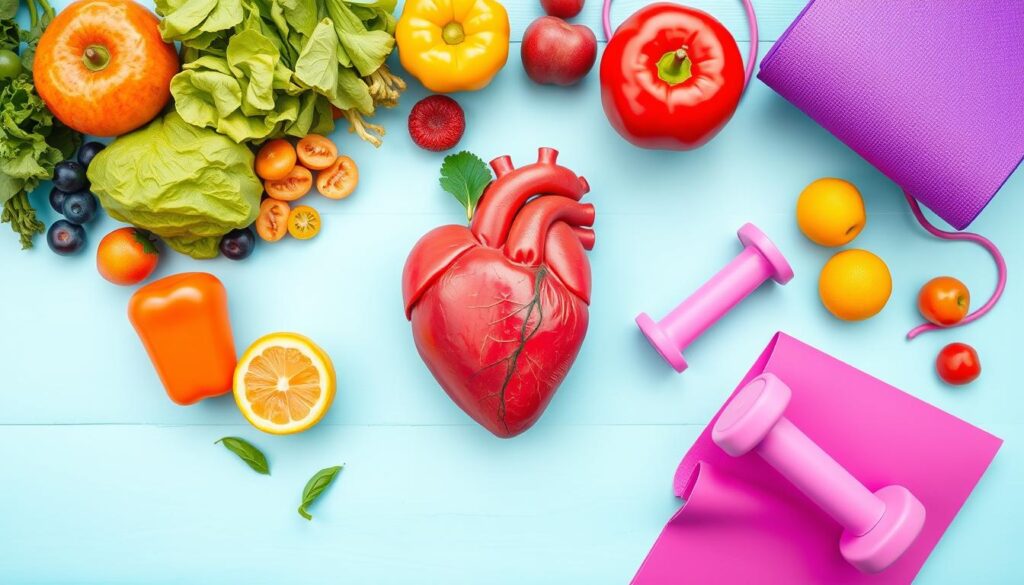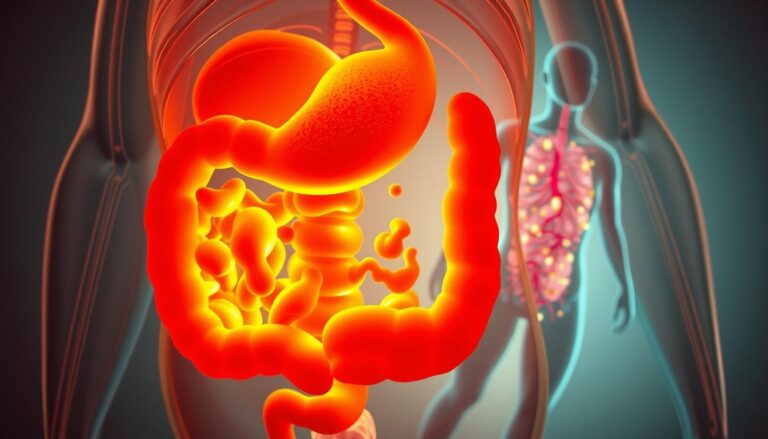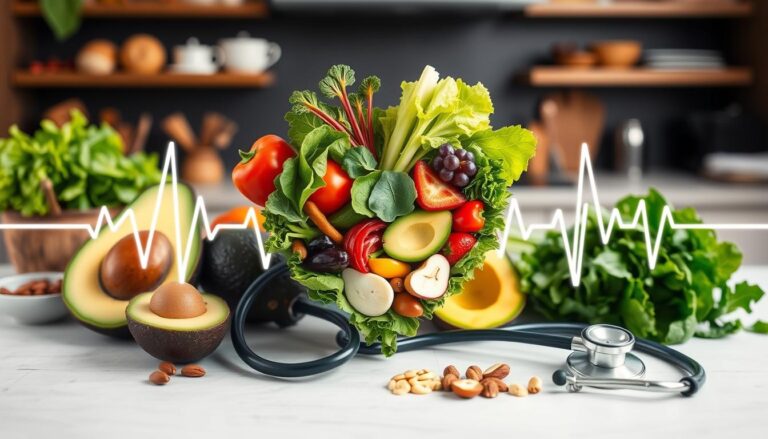The debate between diet vs exercise has been ongoing for ages. It’s a big question Is it diet or exercise that’s more important for health?
This article will dive into the details of this debate. We’ll look at how diet and exercise impact weight loss heart health, muscle building, and mental well-being. By the end you’ll see how these two elements work together for a healthy lifestyle.
Key Takeaways
- Visceral fat, which is more dangerous than subcutaneous fat, can be caused by a diet high in processed foods high in sugar, salt, and carbs.
- Developing a caloric deficit by burning more calories than consumed is key to weight loss, but consuming high-calorie fatty foods regularly can hinder this process.
- Consuming nutrient-rich foods can help build and sustain lean muscle mass, benefiting strength training efforts.
- Engaging in at least 150 minutes of moderate physical activity per week can offer significant health benefits.
- A combination of a balanced diet and regular exercise is the most effective approach for improving overall health and well-being.
The Importance of Weight Loss
To lose weight, you need a calorie deficit from diet or exercise. It’s easier to cut calories through food than exercise alone. Eating whole, minimally processed foods helps manage calories and aids in weight loss.
Benefits of Diet for Weight Loss
To lose one pound you must burn 350 extra calories daily. This takes about ten days. Cutting 500 calories a day and burning 350 more can lead to a pound loss in four days. Avoiding soda and drinks high in sugars and sodium reduces empty calories.
Experts suggest eating mostly fresh, whole foods. This includes vegetables, fruits, nuts, legumes, whole grains, low fat dairy, and lean protein.
Benefits of Exercise for Weight Loss
Exercise, especially strength training and aerobic activity, aids in weight loss. Strength training builds muscle mass increasing your metabolic rate and calorie burn at rest. Aerobic exercise, like walking, jogging, or cycling, burns calories in one session aiding in calorie deficit.
| Exercise | Calories Burned per Hour |
|---|---|
| Running | 650 calories |
| Walking | 350 calories |
| Brisk Walking | 370 calories |
| Jogging 9-minute mile pace | 730 calories |
| Biking | 500 calories |
| Gardening | 400 calories |
By 2010, over one-third of American adults had obesity, with a BMI of 30 or higher. Just 15 minutes of moderate exercise like walking a mile, can burn 100 extra calories. This could lead to losing 10 lbs. in a year.
Exercise Improves Health Regardless of Weight Loss
Many think exercise only helps if you lose weight. But, research shows it boosts health in many ways. This includes better cellular health, HDL good cholesterol, and brain function, even without losing a lot of weight.
Studies show that being more active can improve health, even if you don’t lose much weight. One study found that while exercise didn’t help much with weight loss, it was key to keeping weight off. People needed to do at least 80 minutes of moderate activity each day.
Exercise may not always lead to big weight loss. But, it has many benefits for health markers, cellular health, cholesterol, and brain health. It can lower the risk of diseases like type 2 diabetes and heart disease, even if you don’t lose a lot of weight.
| Health Benefit | Supported by Research |
|---|---|
| Improved cellular health | Studies have shown that exercise can enhance cellular function and resilience, even in the absence of weight loss. |
| Increased HDL good cholesterol | Regular physical activity has been found to raise HDL cholesterol levels, which is associated with a lower risk of heart disease. |
| Reduced artery stiffness | Exercise can improve the flexibility of blood vessels, reducing the risk of cardiovascular complications. |
| Improved brain health | Studies suggest that physical activity can enhance cognitive function and protect against age-related cognitive decline. |
In conclusion, exercise offers many health benefits beyond just weight loss. By focusing on fitness and activity, you can see big improvements in health markers, cellular health, cholesterol, and brain health, even if your weight doesn’t change much.

Does diet or exercise matter more for health?
The debate between diet and exercise for health is common. Both are important, but which one is more crucial? The answer might surprise you.
The 80/20 rule says diet is 80% of weight loss, while exercise is 20%. This means eating right is key for calorie deficit, sustainable weight loss, and weight maintenance. But, exercise has many benefits beyond weight control.
Recommendation Combination of Diet and Exercise
Experts suggest a balanced mix of diet and exercise for the best results. Diet changes might be easier, but exercise helps keep muscle and burns extra calories. This leads to a healthier life.
- A 2023 review found that diet and exercise together led to the most weight loss in adults with obesity.
- Physical activity improves health markers like HDL cholesterol and brain health, even without weight loss.
- To burn 525 calories, a 154-pound person needs to cycle for 1 hour at a moderate pace.
Combining calorie conscious eating with regular exercise offers the most health benefits. These include weight loss, better heart health, and improved mental well being.

The key for healthy, long-term weight loss and management is to use a combination of diet and exercise.
Heart Health Diet vs Exercise
Both diet and exercise are key for a healthy heart. Eating right and staying active can boost heart health together.
Benefits of Diet for Heart Health
Eating foods like veggies fruits, whole grains, and lean proteins is good for your heart. Avoid foods high in sodium, saturated fats, and added sugars. The Mediterranean diet and DASH diet are great for heart health.
Choosing foods low in saturated fat and added sugar helps keep blood pressure and cholesterol in check. This lowers the risk of type 2 diabetes and heart disease.
Benefits of Exercise for Heart Health
Cardio exercise makes the heart stronger and lowers blood pressure and LDL bad cholesterol. It also cuts the risk of type 2 diabetes. Even light activities like walking can help.
The Global Burden of Disease Study shows exercise is vital for heart health. Source: Ding et al. 2016

Combining a healthy diet with regular exercise boosts heart health. This approach is essential for long-term heart health.
Recommendation Combination of Diet and Exercise for Heart Health
Keeping your heart healthy is key to feeling good. Eating right and staying active are top ways to lower heart disease risk. These habits can greatly boost your heart health and life quality.
Eating healthy foods is vital for your heart. It can lower blood pressure reduce inflammation, and lower diabetes risk. Experts say to eat lots of fruits, veggies, whole grains, lean proteins, and healthy fats.
Adding regular exercise is also key. Exercise can prevent sudden heart attacks and other serious heart issues. The American Heart Association and the American College of Sports Medicine suggest mixing aerobic and resistance training for the best heart health.
Start with 30 minutes of aerobic exercise, like walking or swimming five days a week. Also, do moderate weightlifting twice a week. Use a heart rate monitor and track body changes to see if your workouts are working.
Other lifestyle changes can also help your heart. Quit smoking, drink less alcohol, stay at a healthy weight, and manage stress. A holistic approach to a healthy lifestyle can greatly reduce heart disease risk and lead to a longer, happier life.

In conclusion, a diet rich in whole foods and regular exercise are powerful heart health tools. By focusing on these lifestyle changes, you can take big steps towards a healthier, more joyful life.
Building Muscle Diet vs Exercise
To grow muscle, you need a mix of resistance training, progressive overload, and enough protein. Just eating a lot of protein without working out won’t build muscle. On the other hand, working out without enough protein makes it hard to build and keep muscle.
Studies show that protein helps grow muscle in healthy adults. Eating more animal and plant protein can help keep fat down and kidneys healthy. Active people should aim for 1.2 to 1.7 grams of protein per kilogram of body weight. It’s best to eat 20 to 30 grams of extra protein at each meal.
Not all proteins are good for building muscle. Choose lean meats like chicken, beef, and salmon. Eggs, beans, tofu, Greek yogurt, and nuts are also great. Stay away from junk food, alcohol, added sugars, and fried or processed foods to help build muscle.
Building muscle takes time and a balanced diet along with regular workouts. By combining a good workout plan with enough protein, you can reach your muscle-building goals.
Protein and exercise are essential for muscle hypertrophy, and recent perspectives suggest that dietary protein positively influences 24-hour muscle protein synthesis in healthy adults.
- Diets higher in animal and plant protein are associated with lower adiposity and do not impair kidney function in US adults.
- Protein intake trends in the United States have been conforming with the Dietary Reference Intakes.
- Protein supplementation may not significantly augment the effects of resistance exercise training in older adults.
- The response of muscle protein synthesis following whole-body resistance exercise is greater after ingesting 40g of whey protein compared to 20g.

In conclusion, building muscle needs a balanced mix of resistance training and enough protein. By focusing on diet and exercise, you can reach your fitness goals and build muscle effectively.
Mental Health Diet vs Exercise
Good mental health is key to feeling our best. Both diet and exercise are important, but together they work best. This combo is the top way to boost and keep our mental health strong.
Benefits of Diet for Mental Health
Eating well is linked to better mental health. Foods high in healthy fats, fiber, and probiotics help a lot. So do veggies and fruits. On the other hand, not getting enough zinc, vitamins D and B12, and omega-3 fats can hurt our mood.
Benefits of Exercise for Mental Health
Exercise is great for our minds. It makes us feel better right away and over time. It helps our mood, cuts down stress, and improves brain health. This can help with anxiety and depression.
Working out boosts endorphins, which make us happy. It also helps us sleep better. Good sleep is key for our mental health.
Exercise is not just about physical health, it’s also crucial for our mental health. Regular physical activity can help alleviate symptoms of anxiety and depression, and improve overall well being.
To wrap it up, eating right and exercising are both essential for our mental health. By focusing on both we can enjoy better mood, less stress, and a healthier brain.
Conclusion
The debate on diet vs exercise for health is complex. Both are key to a healthy lifestyle. Eating well can help with weight loss, but exercise offers more benefits.
For a lasting healthy lifestyle, you need both good food and exercise. A mix of diet and activity helps reach wellness goals. It improves heart health, builds muscle, and boosts mental health.
Whether you want to manage weight, prevent disease, or boost energy, a balanced approach works best. It combines mindful eating and regular exercise. This way, you can control your health and start a journey towards a healthy lifestyle, balanced approach, and sustainable changes.





